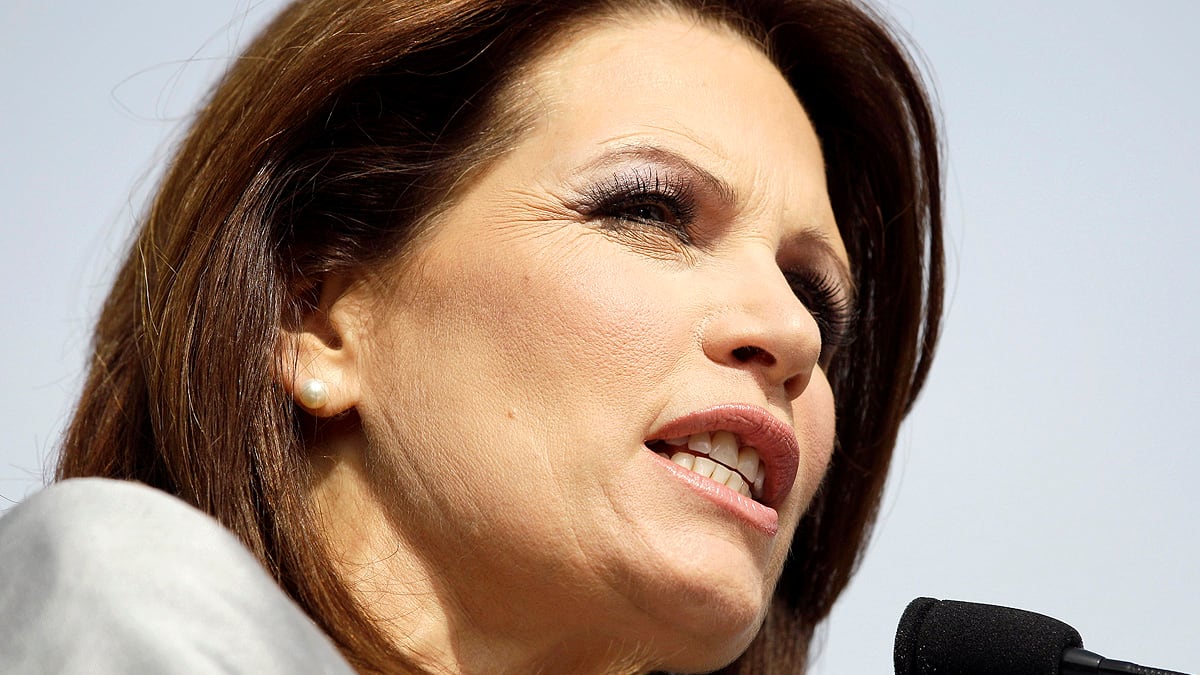Michele Bachmann’s once-soaring campaign took another downward spin Friday after a report that her five-person New Hampshire campaign staff had resigned en masse. Her campaign manager later issued a denial, telling The New York Times's blog The Caucus that he had "just talked to two of them, and they don't know what's going on."
However, sources tell The Daily Beast that at least two top-level aides quit, including Bachmann’s state director Jeff Chidester. These departures followed the exodus in recent weeks of several senior advisers, indicating that the Minnesota congresswoman’s presidential dreams may be fast evaporating.
According to Manchester’s WMUR-TV, which broke the story, the entire staff quit over their frustration with Bachmann’s lack of commitment to New Hampshire and her decision to focus solely on Iowa. Ironically, Bachmann’s former campaign manager, Ed Rollins, and his deputy, David Polyansky, left the campaign in part because Bachmann was not 100 percent committed to their strategy of putting her total effort and resources into Iowa—in the hopes that a win in the first-in-the-nation caucuses could catapult her forward. WMUR-TV reports that the staff felt “constantly betrayed and even lied to.”
The Bachmann campaign declined to comment to The Daily Beast on the reported resignations. But Texas Gov. Rick Perry’s office announced that Caroline Gilger, Bachmann’s southern New Hampshire field director, had joined his team.

Bachmann never generated much enthusiasm in New Hampshire—which tends be a moderate state. Former Massachusetts governor Mitt Romney is heavily favored to prevail in the Granite State. He leads the pack in a recent poill with 40 percent support, compared to Bachmann’s seventh place, at just 3.8 percent. Romney came in second in New Hampshire when John McCain won the state in 2008.
“She has absolutely nothing going here and as far as I can see,” said one GOP political activist in the state, who is aligned with Romney. “She has put no real resources of any kind into the effort…. She would be better served by going directly to South Carolina after Iowa.”
University of New Hampshire political-science professor Dante Scala said Bachmann blew an early opportunity to get traction in the state. “Her strong debate performance here in June created some interest… She had something to build on there,” Scala said. “Some people are looking for an alternative to Romney. But then it was neglect, neglect, neglect.”
Before last week’s Bloomberg/Washington Post debate, Bachmann had not been to New Hampshire since June.
For awhile, Bachmann was considered the candidate to beat in Iowa. Her slide began in August, the day she won the Ames straw poll, when Perry entered the race and began siphoning her support from conservatives. She has been unable to regain any momentum, even with Perry’s slipping fortunes. In the most recent public-opinion survey in Iowa, Bachmann had fallen into fourth place, behind pizza mogul Herman Cain, Mitt Romney, and Ron Paul—discouraging news for a woman who is now essentially running a one-state campaign.






